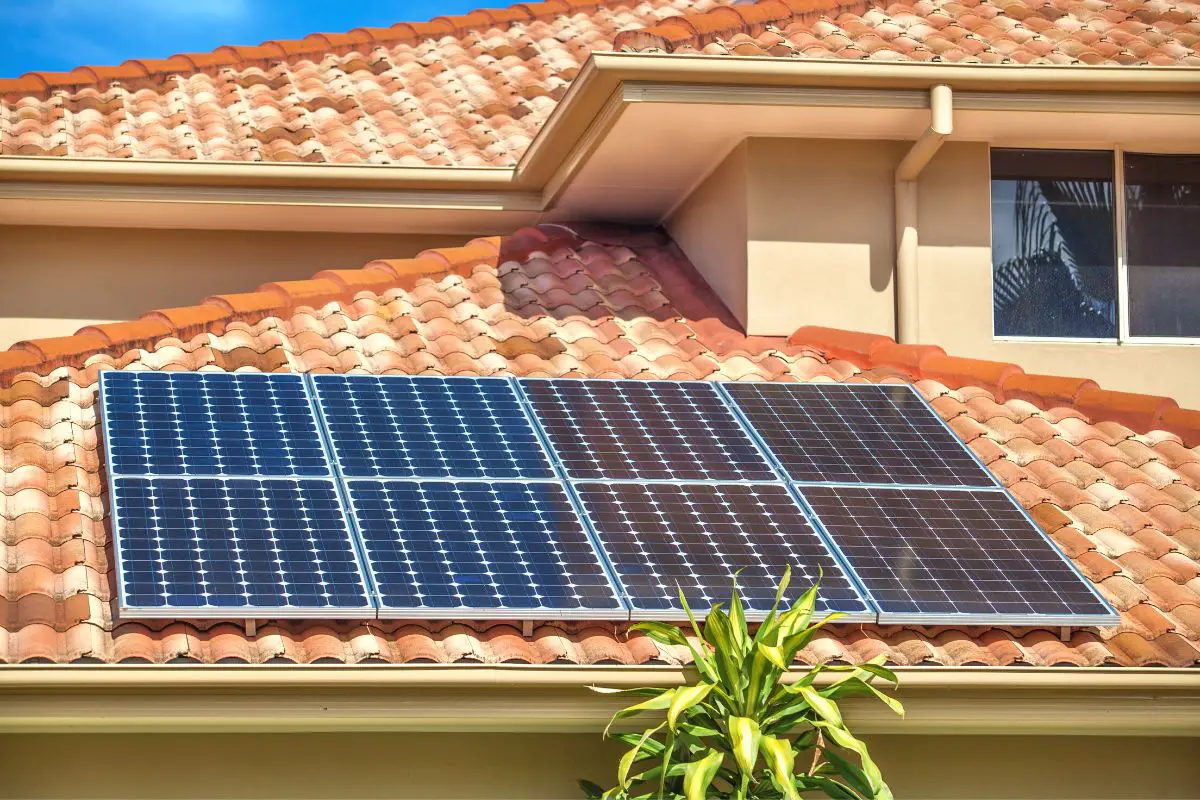Do Solar Panels Work During Power Outage? (Here’s Everything You Need to Know)
Some people believe that solar panels must always be powered by grid electricity to function.
Well, this is not the case.
However, your solar panel may or may not work during a power blackout, depending on the installation you have for your home or business. An off-grid solar system will still give you some juice in case of an outage, while a grid-tied solar system will not.
In this article, we’ll take a look at how this happens.
Let’s get into it!
Related Articles: Do Solar Panels Need Direct Sunlight? and Sunrun vs Tesla Solar Panels
Why Your Solar Panels Won’t Generate Energy During a Power Outage
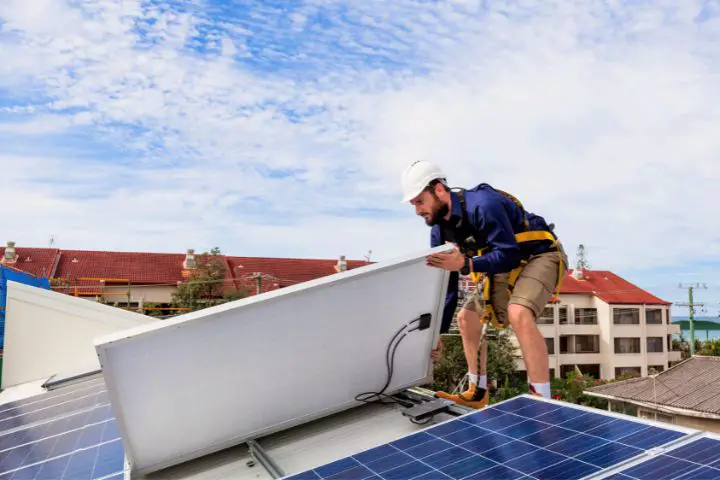
I know it can be quite frustrating for some homeowners when their solar systems don’t kick in when a power blackout occurs.
But, what can cause this to happen?
Well, this will happen if you have a grid-tied solar system installed in your home.
To briefly explain how they work…
First, sunlight hits the panels and generates power. Afterward, this solar power flows through the inverter and is finally used to power your house and electric appliances.
What’s unique about grid-tied solar systems is that they work in tandem with the main grid supply to ensure your home or business always has the right amount of power running through your circuits.
That said…
When your panels produce more electricity than you usually use, the surplus electricity gets moved to the main electric grid. And when your panels fail to give enough power for any reason, the main grid will step in and fill the energy void.
Most modern grid-tied systems have an automated inverter switch that prevents solar power from getting into the main grid when a power outage occurs.
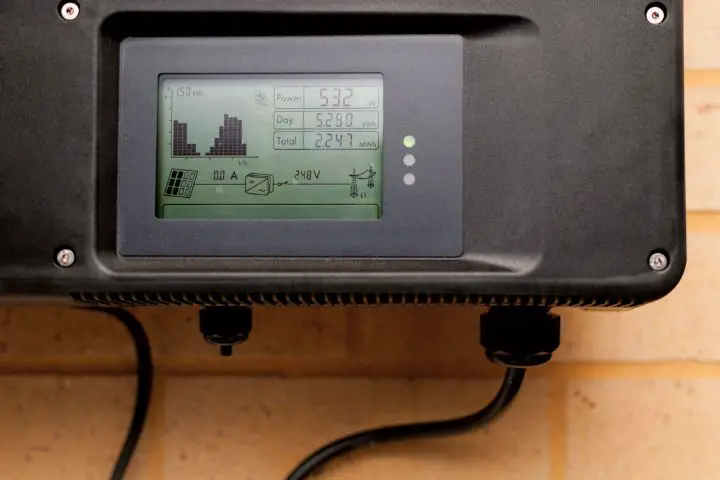
This is very important as it prevents accidental electrocutions when utility workers try to fix the issue.
Note: Most (if not all) power maintenance is usually carried out only on dead power lines for obvious reasons. Ensure that you have a working power inverter that’ll cut off any solar power supply to the main grid during blackouts to prevent such accidents from happening.
How to Use Solar Power During an Outage
There are 2 main ways through which you can still use your solar panels during a power outage:
1. Off-Grid Solar Units
Unlike grid-tied solar systems, off-grid solar systems work independently from the main power supply.
And as such is the case, off-grid solar units often require a sufficient number of batteries to store enough power to get you through bad-weather days and nights.
These batteries are somewhat expensive to acquire; the more you need, the deeper you’ll have to go in your pockets. This makes its average installation cost much higher than grid-tied systems.
In that light (no pun intended)…
Solar systems operating independently from the grid are rarely a good investment for a majority of homes or businesses.
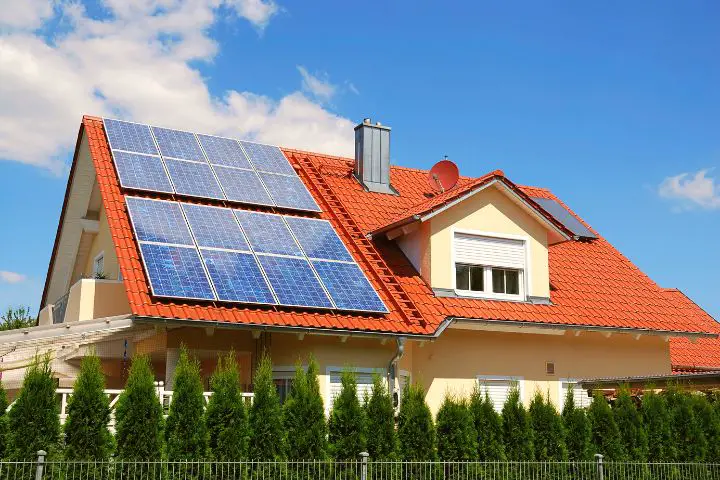
In addition, if your solar system isn’t producing enough electricity and you’ve used up all the energy you’ve stored, you won’t have the option of drawing electricity from the grid.
On the other hand…
Doing so grants you total energy independence, which means you can continue to use your solar system even if the power grid fails.
So, who’s the off-grid solar system for?
Off-grid solar is an excellent choice for homes and businesses located in remote areas with no access to grid-tied electricity.
2. Battery-Backed Solar Units
If you want to save money on your electric bill, consider a grid-tied solar system instead of a separate one.
You can pair this with an energy storage unit of your choice that’ll charge and hold backup power for use when an outage occurs. Also, it’s more economical than stacking up on solar batteries, as in the case of off-grid systems.
Such energy storage systems ensure that the excess power from your solar system is eventually put to good use in the future.
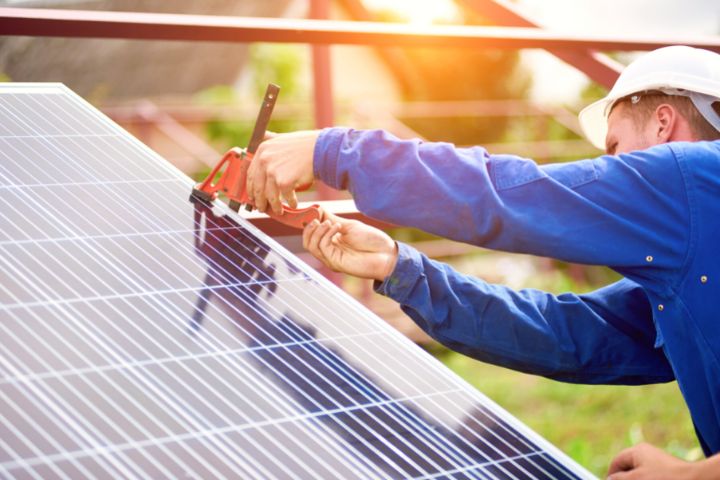
If the grid goes down, you won’t have to worry about putting utility workers at risk, and you’ll have enough energy to power your houselights or a selected appliance, e.g., refrigerator.
In this category, you may also include personal electronics or charging devices such as smartphones and tablets.
And the good news…?
You can also use a backup generator to supplement your solar battery system and keep your backup power expenditures low.
What Does Solar Energy Mean To You?
Solar energy has become an increasingly well-liked renewable energy option in recent years, and its use in many nations is still prevalent today.
This energy is mainly created when sunlight converts into electric current, heat, or both.
Nowadays, solar panels are popular and may be seen installed almost anywhere – be it a rooftop, on the ground in your backyard or in a field to power your farm – to mainly generate electricity. However, they’re also used for heating buildings and providing hot water.
Even though it’s climate-friendly by default, solar energy can be 100% oriented towards that purpose, such as in water desalination.
Benefits of Solar Energy

Aside from the above, some of the other benefits of solar energy include:
- It does not result in the production of any toxic waste. (Although its recycling does pose a few serious problems.)
- It is (relatively) environmentally friendly.
- It is a renewable resource.
Which Is Better Between Off-Grid & Grid-Tied Solar Systems?
What matters most when deciding between the two solar power options is your location, power needs, and financial standing.
If you build a grid-tied solar system, you’ll stay connected to the grid, and you’ll also be able to enjoy power from the main supply whenever your solar system isn’t producing any/enough energy.
You’ll also be able to transfer surplus energy to the grid in exchange for net metering credits. This symbiotic system ensures that you don’t spend as much on installation and operational costs and is suitable for urban or well-populated areas.
However, when the grid fails, you won’t have power either.
On the other hand…
An off-grid system won’t have access to any other source of electricity other than what you get from your solar system, stored in batteries, or provided by your backup generator.
However, if the grid fails, you’ll still have power for your residence/business. Still, installing enough batteries to power your entire household is more costly and is more appropriate for homes in very remote areas.
So, it’s really up to you…
Frequently Asked Questions
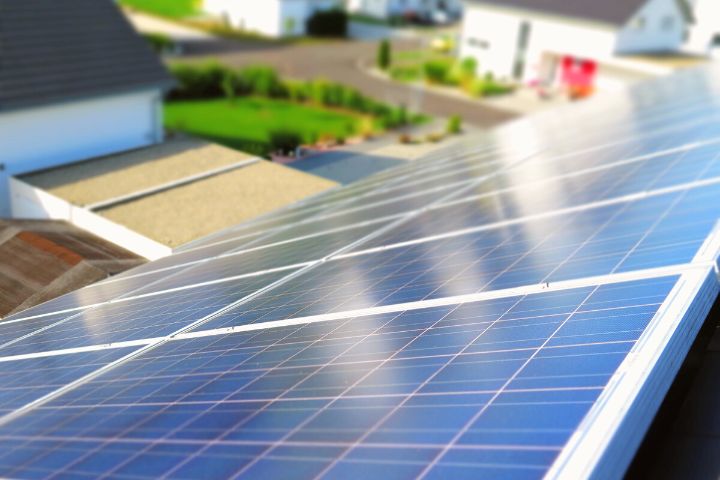
1. Do Solar Power Panels Work in The Dark?
Solar panels will only work in the dark if you have the proper equipment and installed an off-grid system.
Many people with an off-grid solar panel system will need a backup power source when their panels aren’t generating enough energy.
Given that, you’ll need batteries installed so your lights will stay on even if your neighbors are in the dark.
The good news is that a modern inverter system can provide power even if you don’t have batteries during a blackout.
There’s more good news in the sunlight domain. While panels can’t produce energy when it’s pitch black, they don’t need direct sunlight in order to function.
2. Do You Lose Power With Solar Panels?
Solar panels do not cause your electricity to go out.
Since solar panels create power when exposed to sunlight, they’ll only stop working if there isn’t any for an extended period (typically a day).
And if you have a grid-tied system in place, you’ll enjoy continuous power supply from the grid when the solar panels fail to generate enough power.
Nonetheless, if you have an off-grid system and notice that you’re not harvesting as much power as before, chances are that your solar installation needs a good scrub or yearly maintenance. If this is the case, then only source for verified solar installation professionals to service your unit.

